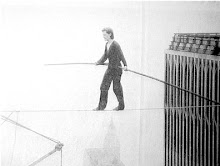Having just spent a month in the United States, I’ve had a chance to catch up on one of my favorite activities - considering regional and national variations on English.
When I started my blog I made a conscious decision to use American spellings. This makes it easier for American readers to follow me without the needless distraction of unfamiliar spellings. Canadian readers have been exposed to American spellings for so long that most of us barely notice whether we’re reading one or the other.
Canadian and British English use the letter “u” more often in their writing. We write words like honor, labour and valor as honour, labour and valour. Many words that Americans spell with an “er” suffix end with “re” in Canada and Great Britain. I’m thinking now of words like theater and center (theatre and centre).
Apparently this is because Canada never severed its connection to Great Britain in as dramatic a fashion as the US did. As a consequence, we were exposed to more English writing for longer and by the time written English started to become standardized the American and British spellings had diverged.
Interestingly, Canadians didn’t adopt all British spellings. For instance, we don’t spell “encyclopedia” as “encyclopaedia” and we don’t spell “fetus” as “foetus.” But there are differences nonetheless.
Americans do something else that Canadians don’t. They say ‘uh-huh.” Canadians might say “mm-hmm” to mean yes, and we use “eh” the same way Americans use “huh.” But Americans don’t just use “uh-huh” to say “yes.” They also use it to say “you’re welcome.”
I say this with a great deal of affection, because I love Americans. I find they’re generally more open and friendly than Canadians. In fact, the day we came home from our trip we went to Wendy’s for lunch and then went out shopping for groceries. The culture shock of experiencing indifferent or even rude retail staff in Canada after frequenting American businesses for almost five weeks was palpable.
So I mean no malice or disrespect when I say this, but almost every time we said “thank you” to anybody for any reason, we received “uh-huh” in reply. It’s one of those things that Emily Post might not like but, to us, it was as polite as anything because it was friendly and genuine. Sometimes we’re just happy to be acknowledged.
Americans lengthen their vowel sounds considerably compared to Canadian and British speakers. For instance, to the American ear a Canadian pronounces “about” as “aboot.” To us it just sounds like “about.” But to a Canadian, the American pronunciation comes out as “abowt.” Americans say “ba-nah-na” and the British say “ba-naw-na.” Canadians say it somewhere in between.
I shouldn’t generalize too much though, because there are far more regional accents in the United States, or Great Britain, for that matter, than there are in Canada. In Canada you’ll find the most prominent regional accents in Newfoundland, Cape Breton Island, among the English speakers of Quebec’s Eastern Townships and Montreal, in the Ottawa Valley and in Toronto and southern Ontario. In most other parts of Canada, the accent is virtually identical.
In the United States you’ll find that many variations throughout the southern states alone. In the UK, you’ll find more variations within a couple hours’ drive of London.
I’m not entirely sure why there are so few regional accents in Canada, but I suspect it’s because most of those who settled the Canadian west were either transplanted Ontarians or new immigrants who learned to speak English from these same Ontarians.
I remember seeing a TV show once about English and they looked in on an elocution class where Canadian actors are learning how to lose their Canuck accents and sound more American. I find myself lengthening my vowels when I spend a long period of time in the States. I also adapt to the distinctive regional accent of my cousins in Quebec’s Eastern Townships when I visit there. I do believe I’m a bit of a chameleon that way, although I still have a hard time not saying “eh.”
As a writer it’s tremendously important to be aware of such regional, national and cultural differences. As I mentioned, I choose to use American spellings in my blog. But at work I use Canadian spellings and when editing must ensure that other writers do as well.
If you truly want to connect with your audience, you need to speak - and write - their language, because in the end, even when we all speak the same language, we don’t.
Thursday, August 12, 2010
Subscribe to:
Post Comments (Atom)

No comments:
Post a Comment